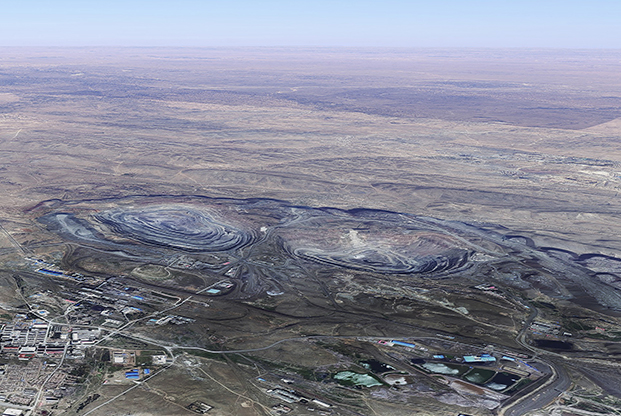President Donald J. Trump declared U.S. dependence on China for rare-earth elements a “national emergency,” directing a multi-agency review and action before the election to establish domestic sources of the materials, which are used in a range of crucial defense and commercial applications.
His executive order provides for loans and grants to domestic and possibly foreign mining companies and relaxes environmental safety standards to reduce potential vulnerability should China or other foreign nations cut off supplies of the vital materials. Rare-earth elements are essential for manufacturing cellphones, hypersonic vehicles, aircraft engines, and more.
China provides more than half of U.S. annual consumption of 31 of 35 “critical” materials, and the U.S. has no domestic supply for 14 of them.
Trump’s order said continued dependence on China, both direct and indirect, is intolerable, noting that China cut off supply of key materials to Japan in 2010 as a coercive diplomatic tactic and that the U.S. must not become susceptible to such tactics.
U.S. dependency on China for materials such as gallium and graphite, “constitutes an unusual and extraordinary threat” to national security, and Trump calls for “expanding and strengthening domestic mining and processing capacity” to guard against supply disruptions. Trump also wants to develop more domestic or friendly sources for barite, which is used in fracking operations to mine natural gas.
In the order, Trump instructed the departments of Defense, State, Commerce, Interior, and more—to collectively and individually assess the situation and to recommend policies to create or restore domestic sources of supply. To achieve those objectives, the order allows for grants, quotas, tariffs, and relaxing environmental protections.
In May, the administration invoked the Defense Production Act to step up rare earths production, setting aside $1.75 billion to buy materials for precision munitions. In 2018, Trump directed the Pentagon to list all the foreign-supplied materials on which it depends, especially those sourced from “adversarial” nations.
To further bolster U.S. supply and level the playing field, the order makes it harder for U.S. companies to buy from countries that don’t observe minimal regulations regarding health and human rights and environmental protections. At the same time, it allows for “initiatives” to “help allies build reliable critical mineral supply chains within their own territories.”
The order also directs cabinet departments to “examine the meaning of the terms ‘avoid, reduce, or sequester’ ” in environmental laws that demand companies “avoid, reduce, or sequester air pollutants or anthropogenic emissions of greenhouse gases.” The Secretaries of Interior, Agriculture, Commerce, the Army, and the head of the Environmental Protection Agency are to “use all available authorities to accelerate the issuance of permits and the completion of projects” to help expand domestic supply of critical materials. They are also to look into “the re-use” of historic and abandoned mining sites, as these may have tailings containing rare earth metals.
The White House defined “supply chain” as anything to do with “exploration, mining, concentration, separation, alloying, recycling, and reprocessing of minerals.”
The Secretary of the Interior is also to look at whether authorities under National Defense Resources Preparedness laws “can be used to establish a program to provide grants to procure or install production equipment for the production and processing of critical minerals” in the U.S.
